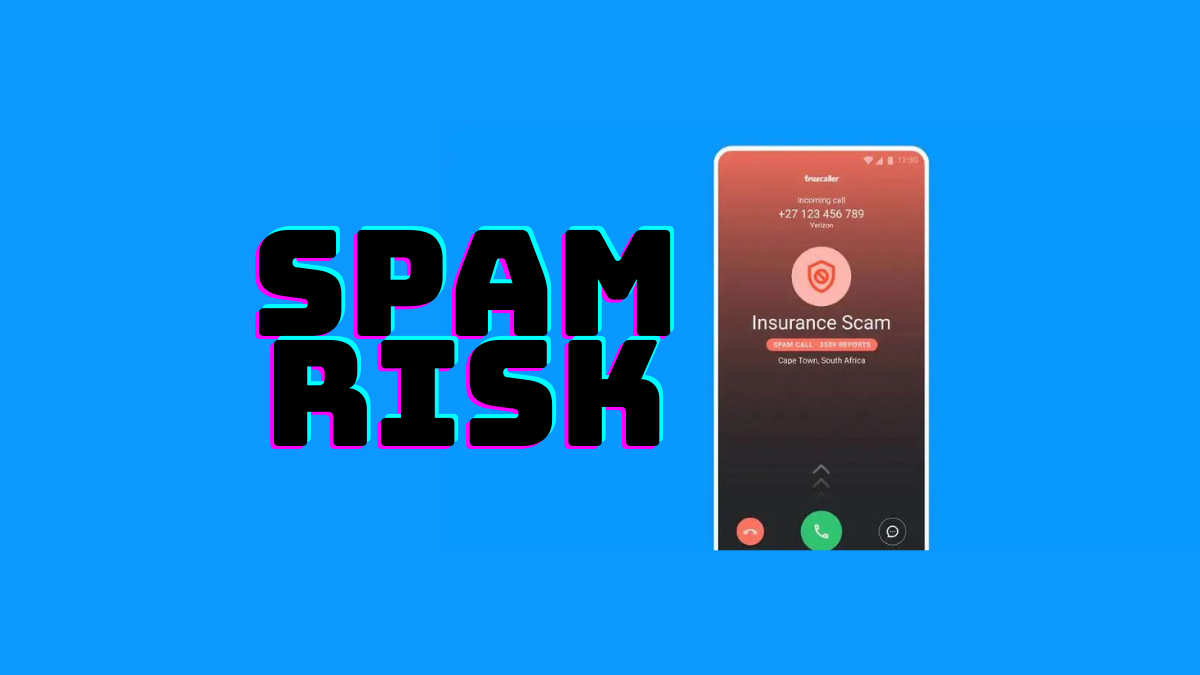Spam Risk: In today’s digital age, we’re all familiar with the annoyance of spam calls. You see an unfamiliar number with the label “Spam Risk” or “Potential Fraud” flashing on your phone screen, and you’re left wondering whether to pick up the call or let it go to voicemail. It’s a dilemma we’ve all faced, and the decision to answer or not can have consequences. In this blog post, we’ll explore what happens if you answer a spam risk call, the risks associated with it, and how to protect yourself from potential scams.
Table of Contents: Spam Risk
Understanding Spam Calls
Before we dive into the potential outcomes of answering a spam risk call, let’s understand what these calls are. Spam calls, also known as robocalls or telemarketing calls, are unsolicited calls made by automated dialing systems. They can come in various forms, including:
- Telemarketing Calls: Calls from businesses or organizations trying to sell you products or services.
- Phishing Calls: Calls that attempt to trick you into revealing personal information like your Social Security number or credit card details.
- Tech Support Scams: Calls claiming to be from tech support, often associated with computer viruses or malware on your devices.
- IRS Scams: Calls pretending to be from the IRS, threatening legal action if you don’t pay a supposed debt.
- Prize or Lottery Scams: Calls informing you that you’ve won a prize or lottery but need to pay a fee to claim it.
What Happens If You Answer a Spam Risk Call?
Now, let’s explore the potential consequences of answering a spam risk call:
1. Confirmation of a Live Number:
When you answer a spam call, you confirm to the caller that your phone number is active and in use. This information can be valuable to scammers, making your number a potential target for future spam calls.
2. Increased Spam Calls:
Answering a spam call might lead to an increase in such calls. Scammers may share your number with other fraudsters, resulting in more unsolicited calls and potential scams.
3. Social Engineering:
Some spam callers engage in social engineering tactics to extract sensitive information from you. They might pose as a bank representative, government official, or tech support, and use persuasive techniques to convince you to share personal details or make payments.
4. Financial Scams:
Answering a spam call can expose you to financial scams. Scammers may use high-pressure tactics to convince you to make immediate payments for fictitious debts or services.
5. Malware Distribution:
In some cases, spam calls may attempt to distribute malware to your device. Clicking on links or downloading files provided by the caller can lead to malicious software being installed on your phone or computer.
6. Identity Theft:
Phishing calls can lead to identity theft if you unknowingly provide personal information such as your Social Security number, date of birth, or financial details to the caller.
7. Financial Loss:
Falling for a scam call can result in significant financial losses. Scammers often target vulnerable individuals and persuade them to make payments or share credit card information.
8. Harassment:
Responding to spam calls may not always lead to financial loss but can result in harassment. Some spam callers are persistent and may keep calling even after you’ve indicated that you’re not interested.
How to Protect Yourself from Spam Calls
Given the potential risks associated with answering spam calls, it’s crucial to take steps to protect yourself. Here are some tips to help you avoid falling victim to spam callers:
1. Use Call Filtering Apps:
Consider using call filtering apps or services that can identify and block spam calls. Many smartphones have built-in features for this purpose.
2. Enable Do Not Disturb:
Activate the “Do Not Disturb” mode on your phone during times when you don’t want to be bothered by unknown callers. You can set exceptions for contacts in your phonebook.
3. Don’t Answer Unknown Numbers:
If you see a call from an unfamiliar or suspicious number, it’s often best to let it go to voicemail. Legitimate callers will usually leave a message.
4. Verify the Caller:
If you receive a call from an organization or agency claiming to be legitimate, don’t provide any information over the phone. Hang up and independently verify the caller’s identity by calling the official contact number of the organization.
5. Be Cautious with Personal Information:
Never share personal or financial information over the phone unless you are absolutely certain of the caller’s legitimacy. Legitimate organizations will not ask for sensitive information over the phone.
6. Report Spam Calls:
Report spam calls to your mobile carrier and to regulatory agencies like the Federal Trade Commission (FTC) in the United States. Reporting helps authorities track down and take action against spam callers.
7. Consider Call Blocking:
If you continue to receive spam calls from a particular number, consider blocking that number on your phone.
8. Educate Yourself:
Stay informed about common spam call tactics and scams. Knowledge is your best defense against falling victim to fraudulent calls.

Conclusion: Spam Risk
Answering a spam risk call can lead to various unwanted consequences, from an increase in spam calls to potential financial loss and identity theft. In today’s digital age, it’s crucial to be vigilant and cautious when it comes to unsolicited calls. Protect yourself by using call filtering apps, enabling “Do Not Disturb” mode, and, most importantly, avoiding the sharing of personal and financial information over the phone.
Remember that legitimate organizations will not pressure you into immediate actions or threaten legal consequences over the phone. When in doubt, verify the caller’s identity independently before taking any action. By staying informed and practicing caution, you can significantly reduce the risks associated with spam calls and maintain your digital security and peace of mind.
